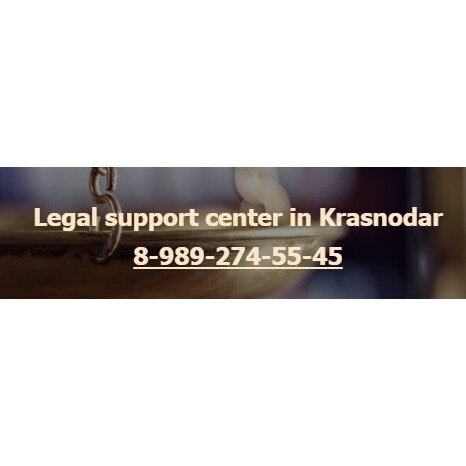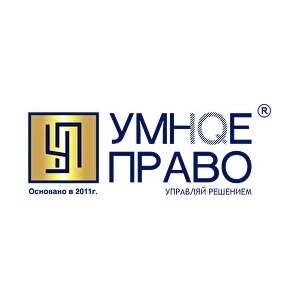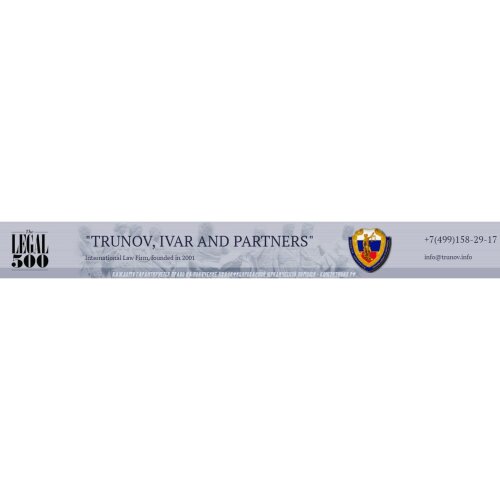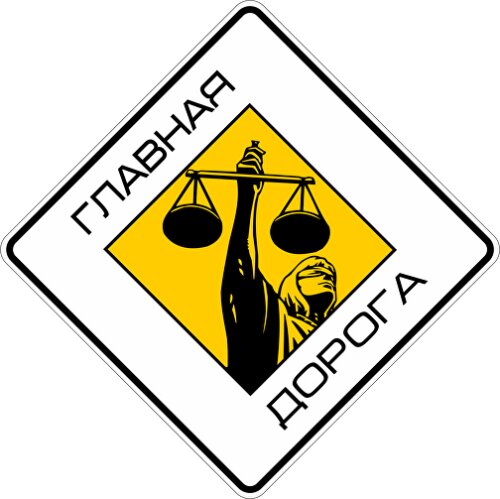Best Inheritance Law Lawyers in Russia
Share your needs with us, get contacted by law firms.
Free. Takes 2 min.
Or refine your search by selecting a city:
List of the best lawyers in Russia
1. About Inheritance Law in Russia
Inheritance law in Russia governs how a deceased person’s property is transferred to heirs. It covers both testamentary transfers via wills and intestate succession when there is no will. The Civil Code of the Russian Federation is the primary legal framework for inheritance, including who can inherit, the order of heirs, and how shares are calculated.
Notarial proceedings are commonly used to formalize inheritance and issue certificates of rights to inheritance. Heirs may need to open an estate with a notary, especially when real estate or registered rights are involved. Costs include notary fees and state duties for certain actions, not a federal inheritance tax in most cases, which affects planning choices for heirs.
In practice, inheritance cases often involve real estate, bank accounts, shares in businesses, and sometimes digital assets or accounts. Legal counsel can help interpret the will, coordinate with banks, and ensure proper title transfers with Rosreestr (the state registrar) when real estate is involved. When disputes arise, court involvement is possible, particularly for contested wills or disputed shares.
According to official sources, inheritance procedures in Russia primarily hinge on notaries acting to grant certificates of inheritance and register property rights, with court actions as a fallback if disputes occur.
Recent trends emphasize efficiency in notarial procedures and expanded access to online services for inheritance tasks. Always verify current steps and fees with official channels before proceeding.
2. Why You May Need a Lawyer
These concrete, Russia-specific scenarios illustrate why a lawyer with inheritance law expertise is valuable:
- A will disinherits a close relative and you suspect the will was prepared under pressure or without full information. A lawyer can assess validity and represent your interests in negotiations or court actions.
- You share assets, such as a house or a business, with several heirs in different regions. A lawyer helps determine rightful shares, handle cross-regional filings, and coordinate notarial actions efficiently.
- The estate contains a business interest or corporate shares. A lawyer can structure the transfer, address corporate governance concerns, and prevent future ownership disputes among heirs.
- The heir notices errors or gaps in the documents, or the notary requires clarification for the certificate of inheritance. A lawyer can prepare corrective filings and manage timeline expectations.
- Creditors claim against the estate before heirs receive their shares. A lawyer can negotiate settlements, protect the estate from improper claims, and ensure proper debt resolution.
- Real property is involved, requiring title registration with Rosreestr. A lawyer coordinates the chain of title, tax considerations, and deadlines to avoid delays.
- Difficulties arise because some assets are located abroad or involve foreign elements. A lawyer helps with cross-border recognition of documents and enforcement of rights in other jurisdictions.
3. Local Laws Overview
Key laws and regulations govern inheritance in Russia. You should be aware of how they interact with practical steps like notary actions and property registration.
- Civil Code of the Russian Federation (Grazhdanskiy Kodeks RF) - The primary source for inheritance rules, including order of heirs, wills, and the concept of forced shares. The Civil Code has been amended over the years and remains the central framework for inheritance disputes and procedures.
- Land Code of the Russian Federation (Zemelnyy Kodeks RF) - Regulates transfer and registration of rights to real estate as part of the inheritance process. It governs how property is re-registered in the name of heirs after death.
- Federal Law on Notaries (Notarial Service Law) - Establishes notary duties, the process to open an inheritance case, and the issuance of certificates of inheritance. Notaries are often the primary path to formalizing succession.
Recent developments in practice emphasize moving more inheritance procedures through notaries and expanding online service options for document submission and appointments. For exact text and current amendments, consult official legal resources.
For precise texts and current amendments, you can review official legal information portals and government service sites. See the sources listed in the References section for official texts and service options.
4. Frequently Asked Questions
What is the difference between a will and intestate inheritance?
A will specifies how the deceased wishes to distribute assets. Intestate inheritance follows statutory rules when there is no will, prioritizing certain heirs defined by law.
How do I start probate or open an inheritance case?
In most cases you begin at a notary office by filing the death certificate and a will, if present. The notary issues a certificate of inheritance after verifying documents.
When is a will considered valid in Russia?
A will must meet formal requirements set by the Civil Code and related regulations. It must be signed and witnessed, and sometimes notarized depending on form and content.
Where do I file for inheritance and obtain a certificate of inheritance?
Most heirs obtain the certificate from a regional notary. If disputes arise, the matter can proceed to court for resolution.
Why might a will be invalid or contested?
Possible grounds include coercion, lack of capacity, or failure to meet formal requirements. An attorney can evaluate validity and guide contested matters.
Can I inherit if I am not a Russian citizen or resident?
Non-residents can inherit assets in Russia, subject to applicable laws and procedural requirements. It is advisable to work with a lawyer familiar with cross-border issues.
Do I need a Russian will to pass assets abroad?
Having a will can simplify transfer of foreign assets in compliance with Russian law. If assets are abroad, additional documentation may be required for recognition overseas.
Should I hire a lawyer for inheritance matters?
Yes, especially for complex estates, contested wills, multiple jurisdictions, or real estate. A lawyer helps safeguard rights and manage timelines and costs.
Do I need to present a death certificate to begin the process?
Yes, a death certificate is typically required to open an inheritance case and start the notarial proceedings.
How much do notary fees and service costs usually amount to?
Fees vary by region and the complexity of the case. Notary fees are regulated and accompany the certificate of inheritance and related actions.
How long does the probate process usually take?
Typical timelines range from several months to a year or more, depending on the complexity of the estate and any disputes among heirs.
Is there a mandatory share (обязательная доля) in Russia?
Yes, certain heirs may be entitled to a mandatory portion, regardless of the will. The calculation depends on the heirs and overall estate composition.
What is the role of an executor or administrator in inheritance matters?
An executor or administrator manages the estate's assets during probate, ensuring debts are settled and assets pass to heirs according to the will or law.
5. Additional Resources
- - Provides information and access to notarial services for inheritance, including appointments and filing documents online. https://www.gosuslugi.ru
- - Official texts of laws, including the Civil Code and regulations related to inheritance. https://pravo.gov.ru
- - Legislative body website for tracking proposed and enacted changes to inheritance law and related statutes. https://www.duma.gov.ru
6. Next Steps
- Identify your goal and gather key documents such as the death certificate, will (if any), and a list of assets. Plan to collect at least 2 weeks of documents before a consultation.
- Find a Russian attorney or solicitor specializing in inheritance law. Look for at least 3 candidate profiles and check referrals or client reviews.
- Request an initial consultation to assess the case, fees, and likely timeline. Bring your documents and a list of questions about fees and outcomes.
- Ask for a written engagement letter or contract outlining scope of work, fees, and payment terms. Confirm fixed fees for specific tasks when possible.
- Choose a lawyer and sign a formal agreement. Schedule a plan for opening the estate with the notary if appropriate, or initiating court actions if contested.
- Prepare and submit documents to the notary or court, guided by your attorney. Track deadlines for all filings and responses.
- Monitor the process and communicate regularly with your attorney about any changes, additional documents, or new claims from creditors or other heirs.
Lawzana helps you find the best lawyers and law firms in Russia through a curated and pre-screened list of qualified legal professionals. Our platform offers rankings and detailed profiles of attorneys and law firms, allowing you to compare based on practice areas, including Inheritance Law, experience, and client feedback.
Each profile includes a description of the firm's areas of practice, client reviews, team members and partners, year of establishment, spoken languages, office locations, contact information, social media presence, and any published articles or resources. Most firms on our platform speak English and are experienced in both local and international legal matters.
Get a quote from top-rated law firms in Russia — quickly, securely, and without unnecessary hassle.
Disclaimer:
The information provided on this page is for general informational purposes only and does not constitute legal advice. While we strive to ensure the accuracy and relevance of the content, legal information may change over time, and interpretations of the law can vary. You should always consult with a qualified legal professional for advice specific to your situation.
We disclaim all liability for actions taken or not taken based on the content of this page. If you believe any information is incorrect or outdated, please contact us, and we will review and update it where appropriate.
Browse inheritance law law firms by city in Russia
Refine your search by selecting a city.
















